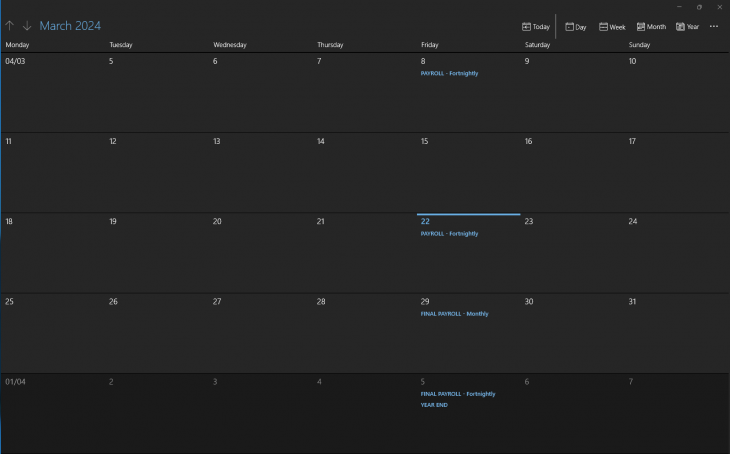On Wednesday 30th October, Rachel Reeves delivered her first budget as Chancellor of the Exchequer, and Labour’s first budget in 14 years. But what changes have been announced in the Autumn Budget? And how will those changes affect you?
National Minimum Wage Increase
The National Minimum Wage (NMW) will increase from April 2025. The hourly rate will rise by 6.7% for those aged 21 and over. The current NMW hourly rate is £11.44, this will rise to £12.21 next year.
Under 18s and apprentices will see their rate increase to £7.55 from £6.40.
The rate for 18–20-year-olds will increase by 16.3% to £10 per hour. This has been implemented as part of a long-term goal to consolidate NMW rates. This plan will see everyone over the age of 18 having the same minimum rate in the future, much like how the 21-22 age bracket was scrapped in April 2024.
Employer National Insurance Increase
From April 2025, the Employer National Insurance (NI) rate will increase from 13.8% to 15%.
Employer NI is the tax contribution made by employers on their employees’ earnings. These contributions are due on earnings which exceed the employer NI threshold. The budget announced that this threshold is now set to reduce from £9,100 to £5,000; employers will be paying a higher rate of tax on more earnings.
Employment Allowance Increase
To combat the impact of the changes to Employer NI, the Autumn Budget did announce an increase in Employment Allowance from £5,000 to £10,500.
Employment Allowance is a government scheme which allows eligible employers to reduce their National Insurance costs by the allotted amount each year. This means that an employer who claims the allowance in April 2025 can reduce their total ER NI contributions for the year by £10,500.
Capital Gains Tax Increases
The autumn budget also announces increases to Capital Gains Tax (CGT) rates in the next financial year. The lower rate will increase from 10% to 18%, whilst the higher rate will increase from 20% to 24%. The new rates match the tax rates for capital gains on property sales.
These rates are in effect from 30th October 2024. Remember that the rate used is dependent on when the sale occurred; sales made before the budget will not be taxed at the new rates. You can find more information on capital gains here.
Inheritance Tax
Currently, the tax-free threshold for inheritance tax (ITH) is £325,000. This increases to £500,000 if the estate is left to children or grandchildren. It was announced in the budget that these thresholds would remain frozen until 2030.
The largest change to IHT is that, from April 2027, inherited pensions will be included within the estate; they will be taxed.
Exemptions on IHT that previously applied to agricultural property have been reviewed. Previously, no IHT applied to agricultural land. The reformed relief will see the first £1m in combined assets be tax-free, but tax on value exceeding this will see a relief of 50%. This means that the IHT rate will be 20%, rather than the usual 40%.
If you need support or resources regarding inheritance tax, you can learn more here.
Carer’s Allowance
Carer’s allowance is a form of government support given to unpaid carers who provide care for a minimum of 35 hours per week. The allowance is currently £81.90 per week. However, you can only claim the allowance if you are earning below the weekly earnings limit. Once this limit is surpassed, you cannot claim the allowance and must repay any allowance claimed that year.
In the autumn budget, it was announced that the weekly earnings limit would be increasing from £151 per week to £181 per week. This will allow carers to work more hours a week without needing to forfeit their benefits.
Additional Announcements
- Employee National Insurance, VAT, and income tax will not increase. The personal tax thresholds, which are used for income tax and Employee NI, are currently frozen until the 2027/28 tax year, but it will increase in line with inflation after this.
- The corporation tax main rate (for companies with profits over £250,000) will remain at 25% for the duration of this Labour government.
- Plans have been made for HMRC to hire additional compliance officers, update their IT systems, and enhance their app services.
- Businesses in the retail, leisure and hospitality sectors will receive 40% relief on business rates from the 2026/27 tax year, up to a £110,000 cap.
- “Non-Dom” status will be abolished from April. A new residence-based scheme will be introduced in its place.
- Benefits will rise by 1.7%, in line with inflation, in April.
- Stamp duty on purchases of second homes and residential property purchases by companies will increase to 5%
- Fuel duty will remain frozen for the next tax year. The 5p cut will also continue.
- Air passenger duty will see small increases, apart from on private jets, which will see a 50% increase.
- A vaping liquid levy will be introduced, and tax on tobacco will continue to rise.
- VAT will be applied to private school fees from 1st January 2024.
- The bus fare cap will remain for another year, but it will be increasing to £3.
If you require any advice regarding changes announced in the budget, or you require help with accounting, tax preparation, or payroll, please do not hesitate to contact us.



Recent Comments